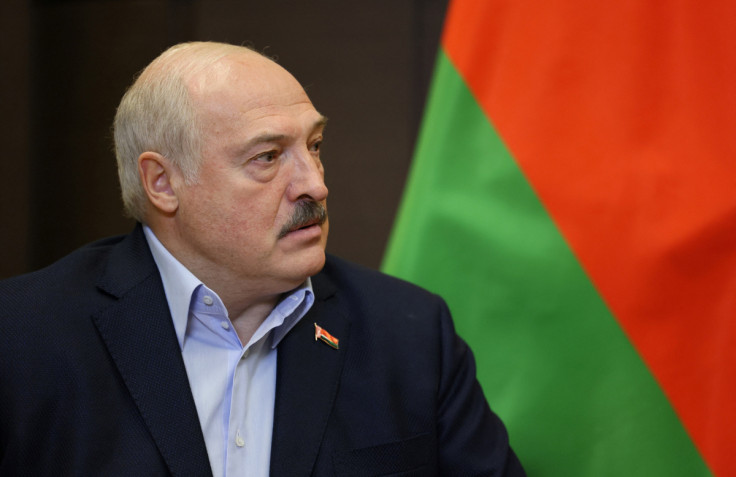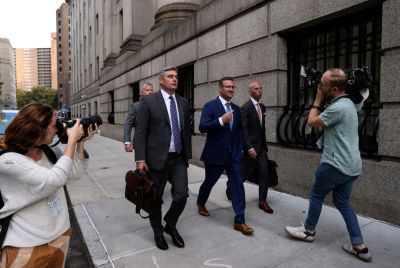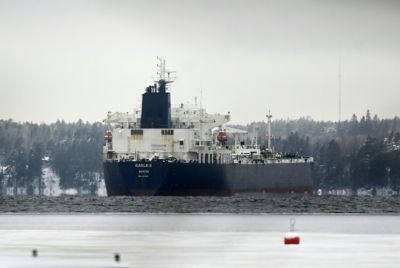Belarus Opposition Leader Says Lukashenko 'Weakened' By His Support For Putin's War

Belarusian President Alexander Lukashenko, an ally of Vladimir Putin, is in a politically "very fragile" position due to Russia's military setbacks in Ukraine, Belarus' exiled opposition leader Sviatlana Tsikhanouskaya said on Friday.
Speaking just before a jailed Belarusian rights activist co-won the Nobel Peace Prize, Tsikhanouskaya - who herself had been mentioned as a possible winner this year - also said Belarusians deserved global recognition for standing up to "a dictator".
"A weakened Kremlin means a weakened Lukashenko," Tsikhanouskaya told Reuters in an interview during a visit to Paris.
"Lukashenko's position is very fragile. People have energy and desire to bring democratic changes and our economic situation is worsening because of sanctions," she said.
Lukashenko, one of President Putin's few firm allies, has allowed Russia to use Belarusian territory as a launchpad for missile strikes into Ukraine and a point of entry for Russian soldiers and warplanes since the start of the war on Feb. 24.
This stance has cost Lukashenko support even among his domestic allies as they "don't support the full isolation of Belarus from European countries", said Tsikhanouskaya.
If protests were to erupt in Belarus now as they did after a contested 2020 election, when Tsikhanouskaya ran and lost to Lukashenko, he would not be able to rely on Russian financial and military support to retain power, she added.
Belarusian opposition parties and civil rights groups and Western countries accused Lukashenko of rigging that election, which he denies. Lukashenko, in power since 1994, used brutal force to suppress the protests.
BELARUSIANS' 'BRAVERY'
Jailed Belarusian activist Ales Byalyatski, Russian rights group Memorial and Ukraine's Center for Civil Liberties won the 2022 Nobel Peace Prize on Friday, highlighting the contributions of civil society to peace and democracy.
The prize will be seen by many as a condemnation of Putin, who turned 70 on Friday, and of Lukashenko, making it one of the most politically contentious in decades.
Byalyatski, founder of the Viasna (Spring) Human Rights Centre, is among more than 1,300 political prisoners in Belarus, Tsikhanouskaya said.
"The Belarusian people deserve all the awards of the world because we showed our bravery and we continued to fight with a dictator in a very difficult situation," she said, referring to the Nobel Peace Prize.
She also expressed regret that "representatives of democratic Belarus" had not been invited to a summit in Prague on Thursday to establish the European Political Community (EPC), a bloc of 27 EU member states and 17 other European countries.
Neither Putin nor Lukashenko were invited to the gathering, underlining their isolation nearly eight months into Russia's devastating invasion of Ukraine.
Tsikhanouskaya said she would want to join the EPC if she were to become leader of Belarus.
© Copyright Thomson Reuters 2024. All rights reserved.





















